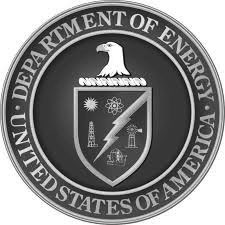Are Donald J. Trump and Hilary Rodham Clinton really the only two people that could be our next
president? Well, yes and no.
According to the Federal Election Commission, 1,780 candidates filed to run for presidency during this
election cycle. With many being eliminated in primaries, dropping out, or simply not being serious
candidates, there are still over twenty candidates with ballot access on one or more states.
But don’t expect to see any of these candidates in the White House any time soon. With the United
States of America’s two-party dominant system, and the Electoral College as opposed to a direct
election, a win from a third-party candidate is virtually impossible.
We are constantly told two things during voting season. One rhetoric claims “Every vote counts! Get out
and show you have a voice in democracy, it’s your civic duty.” But we are also consistently reminded a
third party vote is “wasted,” and a vote for a third party might as well be a vote for the candidate that
seems to be winning. How can both statements be true? Do third party votes matter?
The answer is yes, for a couple reasons. First is influencing the outcome of an election, which can be
viewed as positive or negative depending on the viewpoint. For example, in the 2000 election, many of
Ralph Nader’s voters came from Al Gore’s fan base, effectively “stealing” votes from him. This was
especially apparent in Florida, a state Gore would narrowly lose and subsequently lose the election. The
presence of a third candidate negatively affected Gore’s campaign, while positively affecting George W.
Bush and awarding him presidency.
More importantly, for this specific election, is future status of third parties. There are many candidates
running under a variety of parties representing different interests, but in this election two parties have a
chance to solidify themselves as major players moving forward. The Libertarian Party, with governors
Gary Johnson and Bill Weld leading the ticket, and Green Party, headlined by activist Jill Stein, are both
fighting for votes on November 8 th .
Again, these candidates aren’t going to win the election. Even if Johnson won his home state of New
Mexico, he would fall well short of the required 270 electoral votes needed. A vote for Stein in a heavily
democratic state would have little outcome in the outcome of the election. Despite this, third party
votes still matter.
Any party that garners more than 5% of the national popular vote will receive minor party status for the
upcoming election cycle. This is huge, as parties will receive federal funding as well as automatic ballot
status. With these tools, third party candidates would be in actual striking distance of the White House,
and have the ability to reach the debate stage. A vote for Johnson may not see him as our next
President, but it will give the Libertarian party the resources to compete on a more level playing field
with Democrats and Republicans in 2020.
Finally, there is a huge “what if” that appears extremely unlikely, but could result in Johnson, Stein, or
even independent candidate Evan McMullin winning the presidency. If no candidate reaches 270
electoral votes, made possible only by other candidates winning electoral votes, there would be no
winner on Election Day. Instead, the decision would then shift to the House of Representatives, who
would be tasked with choosing the next President from the three candidates that received the most
electoral votes. This scenario occurred in 1824, when Andrew Jackson won the most electoral votes, but
not the majority needed. The runner-up, John Quincy Adams, was ultimately chosen as the next
President. It’s a longshot at best, as current projections put Clinton well over 270 electoral votes, but it
is worth noting as a technical way a third party candidate could actually win in 2016.
A vote for a third party candidate is not a wasted one, in ways it’s more valuable than voting for, say,
Donald Trump in a heavily blue state, or vice versa. A third party vote is an investment in the future, a
vote made with a conscience, and a vote to break up the broken two party system.




